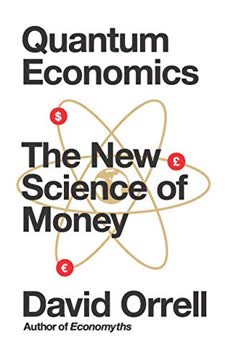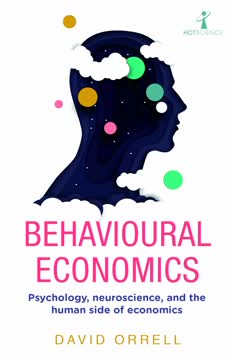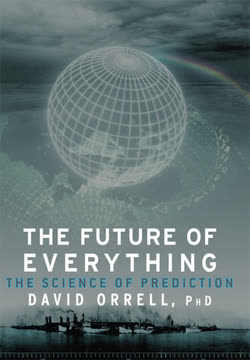Key Takeaways
1. Money is a quantum phenomenon with dual real/virtual properties
Money objects such as coins, notes, or even bitcoins have dualistic properties which rival those of photons or electrons.
Dual nature of money. Like quantum entities, money exhibits both particle-like and wave-like properties. As a particle, it exists as physical objects like coins or notes. As a wave, it represents abstract value and potential. This duality allows money to serve as both a store of value and a medium of exchange.
Historical evolution. The quantum nature of money has manifested throughout history:
- Ancient Mesopotamia: Clay tablets representing abstract value
- Ancient Greece: Coins combining physical metal with symbolic stamps
- Medieval Europe: Tally sticks splitting value between stock and foil
- Modern era: Fiat currencies and digital money emphasizing virtual aspects
Money's ability to bridge the real and virtual realms gives it unique power to shape economic reality. Understanding this quantum essence is key to grasping money's true nature and impact on society.
2. The economy is an entangled quantum system, not a mechanistic one
Instead of behaving like independent Newtonian particles, as assumed in mainstream neoclassical economics, we are actually closely entangled and engaged in a sort of collective quantum dance.
Quantum entanglement in economics. The economy is not composed of independent rational agents, but of interconnected entities whose actions instantaneously affect each other. This entanglement occurs through:
- Financial contracts and debts
- Social norms and shared beliefs
- Market sentiment and herd behavior
- Global supply chains and trade networks
Emergent properties. The quantum nature of economic interactions leads to emergent phenomena that cannot be reduced to individual behaviors:
- Market crashes and bubbles
- Economic cycles and fluctuations
- Collective shifts in consumer preferences
- Self-fulfilling prophecies in financial markets
Understanding the economy as a quantum system reveals why reductionist, mechanistic models often fail to capture real-world dynamics. It highlights the need for holistic approaches that account for interconnectedness and non-linear effects.
3. Mainstream economics ignores the quantum nature of money and markets
By omitting money, and modelling the economy as a stable and self-correcting system, economists helped create an economy that was the exact opposite.
Flaws of mainstream economics:
- Assumes rational, independent agents
- Models markets as self-equilibrating systems
- Ignores the role of money creation and debt
- Treats the financial sector as neutral intermediary
- Relies on unrealistic assumptions of stability and predictability
Consequences of flawed models:
- Failure to predict financial crises
- Underestimation of systemic risks
- Misguided policy recommendations
- Neglect of inequality and environmental issues
- Over-reliance on mathematical formalism at the expense of real-world relevance
By clinging to outdated Newtonian paradigms, mainstream economics has become increasingly disconnected from economic realities. A quantum perspective is needed to address these shortcomings and develop more accurate models of economic behavior and dynamics.
4. Financial transactions are quantum measurements that affect the system
Market prices are not determined by fixed laws, but are the emergent result of a kind of quantum measurement process.
Prices as quantum measurements. When a financial transaction occurs, it collapses the indeterminate state of an asset's value into a specific price, analogous to quantum measurement. This process:
- Is context-dependent and influenced by the act of measurement itself
- Cannot be perfectly predicted due to inherent uncertainty
- Affects future measurements by changing market conditions
Implications for markets:
- Efficient market hypothesis is flawed
- Perfect price discovery is impossible
- Market participants affect prices through their actions
- High-frequency trading and algorithmic systems can create quantum-like effects
Understanding transactions as quantum measurements reveals why markets are inherently unpredictable and prone to sudden shifts. It challenges the notion of objective asset valuation and highlights the role of uncertainty in financial systems.
5. Human decision-making follows quantum rather than classical logic
Classical theory has bounded rationality, quantum is unbounded rationality.
Quantum cognition. Human decision-making exhibits quantum-like properties:
- Superposition: Holding conflicting thoughts simultaneously
- Interference: Mental states affecting each other
- Entanglement: Decisions influenced by social context
- Non-commutativity: Order of information matters
Examples of quantum decision-making:
- Preference reversals based on framing
- Context-dependent choices
- Violations of classical probability theory
- Emotional and intuitive judgments
Quantum cognition explains many "irrational" behaviors that puzzle classical economists. It suggests that human rationality is not bounded, but operates according to a different, more fluid logic. This perspective can lead to more accurate models of consumer behavior, investor psychology, and economic decision-making.
6. The financial system creates money "out of thin air" through loans
When you borrow from a bank, the bank credits your bank account. The deposit – the money – is created by the bank the moment it issues the loan. The bank does not transfer the money from someone else's bank account or from a vault full of money.
Money creation process:
- Banks create new money when issuing loans
- Money supply expands through credit creation
- Central banks do not directly control money supply
- Fractional reserve banking allows multiple expansion of deposits
Implications:
- Money is primarily debt-based
- Economy requires constant growth to service debts
- Financial sector wields enormous power through money creation
- Monetary policy effectiveness is limited
Understanding the true nature of money creation challenges conventional views on banking, inflation, and economic policy. It reveals how the financial system can drive boom-bust cycles and contribute to rising inequality.
7. Economic models fail to predict crises due to flawed assumptions
The models therefore tried to simulate the economy without ever addressing its most basic feature, which is transactions involving money.
Limitations of mainstream economic models:
- Assume rational expectations and efficient markets
- Ignore financial sector and debt dynamics
- Treat economy as stable, self-correcting system
- Rely on unrealistic "representative agent" concept
- Fail to account for non-linear feedback loops
Consequences of model failures:
- Inability to foresee 2008 financial crisis
- Underestimation of systemic risks
- Misguided policy recommendations
- Loss of credibility for economics profession
The persistent use of flawed models has led to a disconnect between economic theory and reality. A quantum economics approach, incorporating uncertainty, interconnectedness, and emergent phenomena, could provide more accurate and useful insights for policymakers and market participants.
8. GDP is a flawed measure that ignores critical factors like sustainability
By measuring any activity that produces numerical wealth, while ignoring or downplaying problems such as resource depletion or pollution, GDP biases the economy towards activities that damage the environment.
Limitations of GDP:
- Excludes non-market activities (e.g., housework, volunteering)
- Ignores environmental degradation and resource depletion
- Fails to account for income distribution
- Counts harmful activities as positive (e.g., pollution cleanup)
- Neglects quality of life and well-being factors
Alternative measures:
- Genuine Progress Indicator (GPI)
- Human Development Index (HDI)
- Gross National Happiness (GNH)
- Inclusive Wealth Index (IWI)
Reliance on GDP as the primary measure of economic success has led to distorted priorities and unsustainable practices. A quantum economics approach would consider a broader range of indicators and account for the interconnected nature of economic, social, and environmental systems.
9. Inequality and environmental damage are intrinsic to our monetary system
Because most of the money supply is created through loans for private banks, the vast majority of the money we use ultimately represents somebody's debt. That debt bears interest, so if the economy were to stop growing, and the money supply tapered off, then it would be impossible to pay off the debt.
Systemic drivers of inequality:
- Debt-based money creation concentrates wealth
- Compound interest leads to exponential growth of debts
- Financial sector profits from money creation and interest
- Asset inflation benefits wealthy property owners
Environmental consequences:
- Constant growth imperative conflicts with ecological limits
- GDP-focused policies ignore environmental costs
- Debt drives resource extraction and consumption
- Short-term profit motives override long-term sustainability
The current monetary system creates inherent pressures for inequality and environmental degradation. Addressing these issues requires fundamental reforms to how money is created and circulated in the economy.
10. A new quantum economics is needed to address modern challenges
Instead of predicting an economy that is efficient, fair, and stable, quantum economics suggests one that is creative but tends towards inequity and instability – rather like the world we live in.
Key features of quantum economics:
- Incorporates uncertainty and non-linear dynamics
- Models economy as complex, interconnected system
- Accounts for role of money creation and debt
- Considers psychological and social factors in decision-making
- Integrates environmental and social sustainability
Potential applications:
- More accurate risk assessment and crisis prediction
- Better understanding of market dynamics and bubbles
- Improved policy design for addressing inequality
- Integration of economic and ecological models
- Development of alternative monetary systems
Quantum economics offers a framework for understanding and addressing the complex challenges of the 21st century economy. By embracing uncertainty, interconnectedness, and emergent phenomena, it can provide more realistic and effective approaches to economic policy and management.
Last updated:
FAQ
1. What is Quantum Economics: The New Science of Money by David Orrell about?
- Quantum-inspired economics: The book proposes a new economic framework inspired by quantum physics, arguing that money and markets exhibit quantum-like properties such as entanglement, indeterminacy, and interference.
- Critique of classical models: Orrell critiques traditional, mechanistic economics for ignoring the active, complex role of money and for relying on unrealistic assumptions like rational economic man and equilibrium.
- Interdisciplinary approach: The book integrates insights from quantum physics, behavioral economics, complexity theory, and social sciences to create a richer, more realistic economic theory.
- Societal implications: Orrell connects his theory to issues like financial instability, inequality, environmental sustainability, and the need for ethical reform in economics.
2. Why should I read Quantum Economics: The New Science of Money by David Orrell?
- Understand economic failures: The book explains why mainstream economics failed to predict or prevent crises like the 2007–08 financial crash, highlighting the neglect of money’s quantum nature.
- Fresh perspective on behavior: Orrell introduces quantum cognition, offering a more accurate and humane model of economic decision-making that accounts for context and entanglement.
- Broader societal relevance: The book links economics to environmental and ethical concerns, challenging the dominance of GDP and advocating for new metrics and values.
- Foundation for reform: Readers gain tools to rethink economic policy, financial stability, and the role of money in society.
3. What are the key takeaways from Quantum Economics: The New Science of Money by David Orrell?
- Money as a quantum entity: Money is not just a medium of exchange but has a dual, quantum-like nature, combining numerical and owned-object properties.
- Economy as a complex system: The economy is better understood as a network of entangled agents and feedback loops, not as a self-stabilizing machine.
- Human behavior is quantum-like: Economic decisions are context-dependent, probabilistic, and influenced by entanglement with others, challenging the rational economic man model.
- Need for new metrics and ethics: Traditional measures like GDP are inadequate; economics should incorporate ethics, sustainability, and collective well-being.
4. How does David Orrell define money differently in Quantum Economics compared to traditional economics?
- Quantum duality of money: Orrell defines money as a quantum object with both real (owned thing) and virtual (numerical value) aspects, similar to wave-particle duality in physics.
- Measurement process analogy: Money acts like a quantum measurement, collapsing uncertain value into a definite price during transactions.
- Entanglement in creation: Money creation involves entangled pairs of debt and credit, linking people and institutions in complex ways.
- Beyond inert medium: This view challenges the traditional notion of money as a passive medium or mere metric.
5. What is the "quantum theory of money and value" in Quantum Economics by David Orrell?
- Dualistic nature: Money combines the properties of a number (price) and an owned thing (value), analogous to quantum wave-particle duality.
- Uncertainty and measurement: Prices are not fixed but are uncertain properties created through transactions, much like quantum measurements collapse probabilities.
- Entanglement in finance: Every act of money creation produces entangled debt and credit, influencing the dynamics and risks of the financial system.
- Rejects classical value theories: The theory moves beyond labor or utility-based value, focusing on the process of value realization.
6. How does Quantum Economics by David Orrell use concepts like entanglement and uncertainty from quantum physics to explain economics?
- Entanglement analogy: Financial contracts, such as loans, entangle debtor and creditor, so changes in one party affect the other instantly, mirroring quantum entanglement.
- Uncertainty principle: Economic values and prices are fundamentally indeterminate until measured in a transaction, similar to the uncertainty in quantum systems.
- Measurement effect: The act of transacting (measuring) changes the economic system, meaning outcomes are not predetermined but emerge through interaction.
- Complex feedback loops: These quantum concepts help explain financial instability and the emergence of crises.
7. What is the concept of "rational economic man" and how does Quantum Economics by David Orrell critique it?
- Classical definition: Rational economic man is the model of a perfectly rational, selfish individual with fixed preferences and perfect foresight.
- Behavioral critique: Orrell discusses how behavioral economics exposes cognitive biases and irrationalities, but only tweaks the classical model.
- Quantum cognition challenge: The book argues that human preferences exist in superpositions and change with context, making the rational economic man an oversimplification.
- Entangled, probabilistic agents: Economic agents are better modeled as quantum entities with entangled, context-dependent preferences.
8. How does quantum logic differ from classical logic in economic decision-making, according to Quantum Economics by David Orrell?
- Binary vs. superposition: Classical logic assumes fixed, binary choices, while quantum logic allows for superpositions—preferences can exist in multiple states until measured.
- Order matters: In quantum logic, the order of questions (measurements) affects outcomes, explaining phenomena like the order effect in surveys.
- Context-dependence: Economic decisions are influenced by context and previous measurements, which classical models cannot capture.
- Better behavioral fit: Quantum logic accounts for uncertainty, interference, and entanglement in human decision-making.
9. What is the "order effect" and how does Quantum Economics by David Orrell explain it using quantum theory?
- Order effect defined: The order in which questions are asked changes the answers, a phenomenon classical probability cannot explain.
- Quantum cognition model: Mental states are superpositions that collapse upon answering, altering the context for subsequent questions.
- Non-commutative measurement: Quantum theory naturally predicts symmetrical order effects, making them consistent rather than irrational.
- Real-world relevance: This insight helps explain survey results and decision-making anomalies in economics.
10. How does Quantum Economics by David Orrell reinterpret the "prisoner’s dilemma" using quantum game theory?
- Classical dilemma: Traditional game theory predicts rational players will always betray, leading to suboptimal outcomes.
- Experimental contradiction: In reality, people cooperate about half the time, defying classical predictions.
- Quantum game theory: Players are modeled as qubits in superposition, with entangled strategies that explain observed cooperation rates.
- Social norms and entanglement: This approach reflects the influence of shared norms and interconnectedness in real human behavior.
11. How does Quantum Economics by David Orrell explain financial crises and instability differently from mainstream economics?
- Mainstream view: Crises are seen as random shocks to a stable equilibrium, with markets assumed to be self-correcting.
- Quantum perspective: The economy is an entangled, nonlinear system where money creation and debt create complex feedback loops and endogenous instability.
- Emergence of crises: Financial crises arise from within the system due to these entanglements, not from external shocks.
- Modeling implications: Quantum economics suggests agent-based, quantum-inspired models better capture sudden, discontinuous events like defaults and bubbles.
12. What ethical and societal implications does Quantum Economics: The New Science of Money by David Orrell draw from the quantum view of the economy?
- Interconnectedness and responsibility: Individuals are entangled parts of social systems, so economic actions have collective consequences.
- Money and ethics: The quantum nature of money means economic decisions inherently involve ethical considerations like fairness and trust.
- Challenging individualism: The book calls for moving beyond atomistic, selfish models to embrace cooperation and social embeddedness.
- Policy reforms: Orrell suggests reforms such as universal basic income, financial transaction taxes, and expanding the commons to align economics with human and planetary well-being.
Review Summary
Quantum Economics receives mixed reviews, with ratings ranging from 1 to 5 stars. Positive reviewers praise its innovative approach to economics, drawing parallels with quantum theory and critiquing mainstream economic models. They appreciate Orrell's fresh perspective on money and markets. Critical reviewers argue the book misuses quantum concepts, lacks precision, and fails to provide concrete solutions. Some find it thought-provoking despite its flaws, while others dismiss it as pseudoscience. Overall, readers agree that economics needs reform but debate the merits of Orrell's quantum-inspired approach.
Similar Books


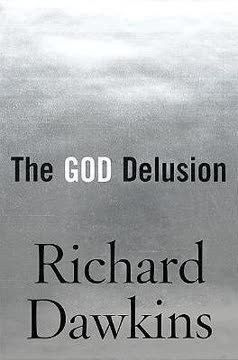
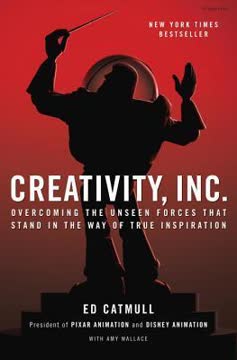


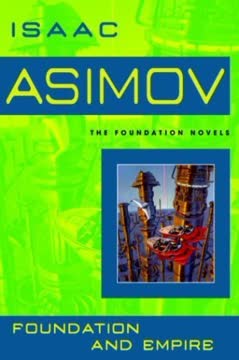
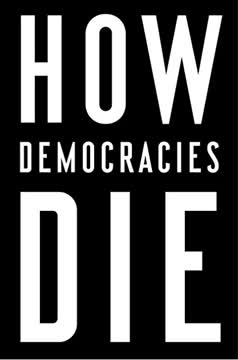
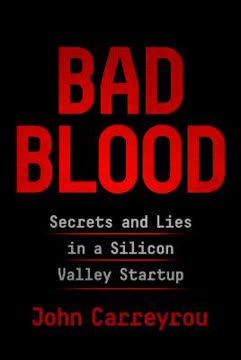

Download PDF
Download EPUB
.epub digital book format is ideal for reading ebooks on phones, tablets, and e-readers.
